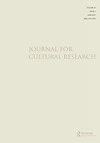“我能够像在现场一样参加会议”——女地方议员、远程会议出席,以及Covid-19:大流行的积极影响?
IF 0.6
Q1 CULTURAL STUDIES
引用次数: 1
摘要
本文探讨了在冠状病毒(Covid-19)大流行期间实施的远程出席理事会会议所提供的可能性的研究结果,并反思了这将如何改善女性地方议员的经验,以及女性的政治参与和威尔士地方政府未来的可及性。受女权主义制度主义理论的影响,本文考察了地方议会在大流行前的正式组织规范和做法,并探讨了参与者对地方议会可及性的看法和经验,特别是对有家庭和/或有其他形式就业的年轻妇女。本文介绍了在大流行期间对威尔士(英国)妇女地方议员进行的19次半结构化访谈的数据,包括面对面访谈和随后的在线访谈,讨论了远程出席地方议会会议如何被视为正式组织实践的有利转变,特别是对农村委员会而言。尽管有一些不同意见和质疑(主要是关于未来的混合实施),通过减轻当地议员的时间成本,特别是女性平衡政治,个人和专业的性别“三重责任”,远程会议出席是一种组织上的解决方案,尽管在实施中有些强制,这为改善妇女在当地政府的政治参与和代表提供了明确的途径。本文章由计算机程序翻译,如有差异,请以英文原文为准。
“I was able to take part in the chamber as if I was there” – women local councillors, remote meeting attendance, and Covid-19: a positive from the pandemic?
ABSTRACT This article explores research findings regarding the possibilities offered by remote attendance at council meetings as implemented during the coronavirus (Covid-19) pandemic, and reflects upon how this may improve women local councillors’ experiences, as well as women’s political participation and the accessibility of Welsh local government going forward. Influenced by feminist institutionalist theory, this paper examines how councils’ formal organisational norms and practices pre-pandemic privileged presenteeism, and explores participants’ perceptions and experiences of the accessibility of local councils, especially for younger women with families and/or in other forms of employment. Presenting data from 19 semi-structured interviews with women local councillors in Wales (UK), both in-person and subsequently online during the pandemic, the paper discusses how remote attendance in local council meetings was considered an enabling shift in formal organisational practices, especially for rural councils. Despite some dissenting opinions and voiced dubiousness (mostly concerning future hybrid implementation), through easing the time costs of being a local councillor, particularly for women balancing a gendered ‘triple duty’ of the political, personal, and professional, remote meeting attendance is an organisational solution, albeit somewhat forced in implementation, which presents clear means of improving women’s political participation and representation in local government.
求助全文
通过发布文献求助,成功后即可免费获取论文全文。
去求助
来源期刊

Journal for Cultural Research
CULTURAL STUDIES-
CiteScore
1.40
自引率
0.00%
发文量
23
期刊介绍:
JouJournal for Cultural Research is an international journal, based in Lancaster University"s Institute for Cultural Research. It is interested in essays concerned with the conjuncture between culture and the many domains and practices in relation to which it is usually defined, including, for example, media, politics, technology, economics, society, art and the sacred. Culture is no longer, if it ever was, singular. It denotes a shifting multiplicity of signifying practices and value systems that provide a potentially infinite resource of academic critique, investigation and ethnographic or market research into cultural difference, cultural autonomy, cultural emancipation and the cultural aspects of power.
 求助内容:
求助内容: 应助结果提醒方式:
应助结果提醒方式:


